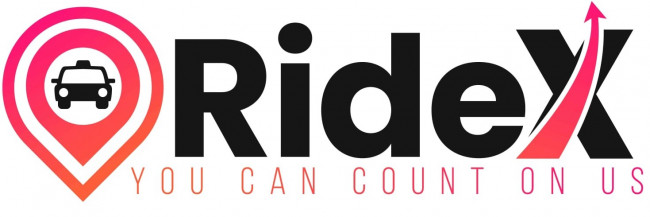
Secure Data with Physical Record Management
Efficient data management is the backbone of industries such as business, banking, healthcare, and others where critical information must be handled with care. While digital solutions are heralded for their convenience, the importance of Physical Record Management remains unwavering, especially in managing sensitive documents like legal files or financial records. This approach ensures better control over data security, accessibility, and compliance, making it a fundamental component in any organization’s operational framework.
This article explores Physical Record Management, its significance, the benefits it offers, best practices for implementation, and how companies in Pakistan can select optimal solutions tailored to their needs.
What Is Physical Record Management
Physical Record Management refers to the systematic process of organizing, storing, handling, and retrieving paper-based documents. It ensures that physical records are not only well-organized but also readily accessible when required, making daily operations smoother and more productive.
Effective Physical Record Management services typically provide storage systems to safeguard important files, reduce clutter, and optimize retrieval times. Common examples of documents handled include:
- Bank statements and transaction records
- Legal contracts and agreements
- HR records such as employee details and payroll
- Industry compliance paperwork
By implementing organized processes for storing and accessing these critical documents, businesses can operate without the risk of lost or inaccessible files.
Why Businesses Need Physical Record Management
Maintaining physical records is much more than just storing papers. It’s about ensuring that your valuable data is protected, organized, and always within reach. Here’s why Physical Record Management is especially vital for industries like banking, healthcare, and large-scale enterprises:
- Enhanced Data Security
Mishandling sensitive documents can lead to compliance breaches, financial setbacks, or reputational damage. Proper Physical Record services reduce these risks. - Regulatory Compliance
Governments and regulatory bodies have strict guidelines on how certain records should be stored and maintained, particularly in sectors like banking and finance. Managing records properly ensures adherence to these standards. - Faster Retrieval Times
An organized Physical Record Management system enables employees to locate specific records quickly. This can make a critical difference in situations like audits, where timely access to paperwork is essential.
Real-World Example
A financial organization in Pakistan faced a compliance audit, requiring five years of client records. Their systematic Physical Record Management not only prevented delays but also showcased their commitment to regulation, avoiding possible penalties.
Benefits of Physical Record Management
The advantages of an effective Physical Record Management strategy span across multiple operational facets:
Improved Accessibility
- Organizing documents through categorization and structured filing allows easy and faster retrieval.
- Bulk document management solutions, like Physical Record Warehouse Solutions, are especially useful for large-scale industries managing massive volumes of records.
Enhanced Security
- Proper systems mitigate risks of theft, unauthorized access, or accidental loss.
- Solutions often employ mechanisms like restricted access storage rooms and secure vaults for highly confidential documents.
Cost and Space Efficiency
- Consolidating physical records into compact storage systems reduces office clutter and frees up valuable space for other operations.
- Optimized handling can save costs associated with disorganized document searches and misplaced files.
Better Compliance and Governance
- Maintaining documents in line with local legal and financial regulatory standards ensures a smoother auditing process.
- This is particularly crucial for industries in Pakistan, where compliance requirements demand strict documentation practices.
Evaluating Your Physical Document Needs
To develop a robust strategy for managing physical records, businesses must first evaluate their requirements. Here’s a checklist to guide the process:
- Volume of Records
Assess the daily, monthly, and yearly quantity of documents handled to determine storage capacity needs. - Sensitivity of Data
Evaluate whether documents contain sensitive or classified information requiring heightened security. - Legal Compliance
Identify auditing requirements as per industry regulations to plan for long-term record retention.
Seeking professional consultation for tailored Physical Record Warehouse Solutions can simplify this process, especially for institutions with unique demands.
Best Practices for Managing Physical Records
To ensure a streamlined and effective Physical Record Management system, implement these best practices:
Categorize and Label Documents
- Divide files systematically based on their type or relevant department (e.g., Finance, HR, Legal).
- Label them clearly to avoid misplacement and improve retrieval efficiency.
Secure Storage Systems
- Invest in storage facilities offering optimal conditions like temperature and humidity control to preserve document integrity.
- Many Physical Record services offer customized solutions for secure and scalable storage.
Implement Access Control Measures
- Restrict access to sensitive files by allocating permissions only to authorized individuals.
- Use sign-out or digital monitoring systems to track who accesses which documents.
Regular Audits and Disposal Practices
- Periodically review stored files to identify outdated or irrelevant documents for secure disposal, such as shredding.
- This minimizes clutter while maintaining compliance with document lifecycle policies.
Choosing the Right Solution for Physical Record Management
Whether your business operates in banking, healthcare, or another sector, finding a dependable Physical Record solution requires careful evaluation. Here’s what you need to keep in mind:
- Scalability
Choose services offering flexible solutions that can accommodate your growing document needs. - Security Certifications
Make sure the service provider adheres to stringent data security standards, particularly for classified or sensitive records. - Reputation
Research client reviews and testimonials to gauge the reliability and professionalism of the provider. - Localized Solutions
Certain industries in Pakistan have unique compliance and storage needs. Opt for providers offering customized solutions for the local business environment.
Onboarding Process
Once you identify the right provider, discuss the process of migrating your files to their system. The transition timeline often depends on the volume of records and the level of customization required.
Key Benefits Recap
An organized Physical Record Management system provides countless benefits. From maintaining better control over your data to ensuring regulatory compliance, effective record storage is essential for businesses. Incorporating an Evaluation Physical Document approach allows businesses to assess their processes thoroughly, while practices like document categorization, secure storage, and regular audits help reduce risks and enhance operational efficiency.
By working with professional Physical Record services, especially solutions tailored for companies in Pakistan, you can take full control of your valuable data.
Businesses must now take a moment to assess their current strategies and evaluate their needs. Adopting optimized solutions and designing an efficient Physical Record Warehouse Solution can protect your data and ensure seamless operations for years to come.
















